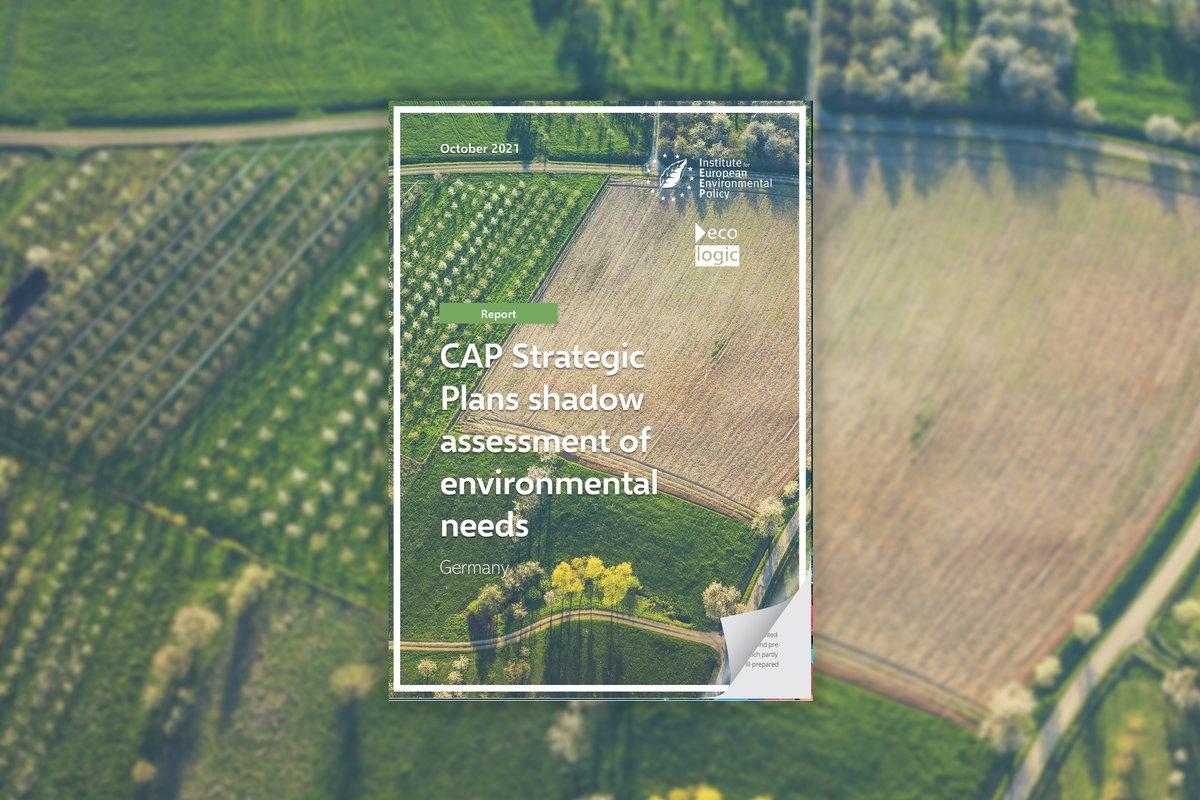AUTHORS: Ana Frelih-Larsen – Sophie Ittner – Elisa Kollenda
The Common Agricultural Policy (CAP) is the key funding tool to address sustainability challenges in the agriculture sector. This IEEP report sets out the main environmental needs in Germany relating to agriculture, to inform the decision-making process on how CAP funds will be spent.
The future CAP is meant to be focused on performance, delivering results against a set of EU objectives which are translated into national and regionally identified needs. The CAP strategic plans (CSPs) are supposed to be at the heart of this new model and could, if used at their full potential, help support a transition towards sustainable farming across the EU and be an important tool to meet the European Green Deal objectives.
This report by IEEP sets out the major environmental needs in Germany relating to agriculture to inform the process of the CAP strategic planning in Germany. This process will determine how Germany spends around € 30 billion in farming subsidies to 2027.
How Germany spends this money has significant implications for the climate and environment, given the contribution of the German agriculture sector to greenhouse gas emissions, biodiversity decline and other environmental challenges including water pollution. It will therefore have a strong role to play in whether Germany, and the EU as a whole is able to reach the goals of the European Green Deal.
IEEP has conducted this report in order to
- provide German and EU stakeholders and decision-makers with evidence-based material to inform German CAP strategic plan intervention logic
- provide a reference point for the evaluation of the German government’s own needs assessment in their CAP strategic plan.
IEEP has conducted similar reports for France, Spain (forthcoming) and Hungary (forthcoming).
Key findings
Here are the main findings for climate and biodiversity (see the full report for findings on water, soil and air):
Climate: The main sources of emissions in German agriculture are methane from livestock production, nitrous oxide from fertiliser use, and losses of carbon from drained peatlands. Our assessment shows that, given current estimates, policy choices and future prospects, Germany is not on track to meet the reduction commitments for 2030, especially regarding ammonia and methane. It will therefore be necessary to design a CSP that efficiently and effectively reduces methane emissions, nitrous oxide emissions and carbon dioxide emissions from drained peatlands.
Biodiversity: The farmland bird population has decreased by 15% since 2000 in Germany, nearly 50% of the 557 assessed bee species are endangered and over 40% of species show a long-term negative population trend. More than two-thirds of habitats and species are in unfavourable conservation status, and 34% of species and 41% of habitats have a deteriorating trend. One of the main pressures Germany is facing concerns grassland conservation which has serious impacts on farmland biodiversity. Even though several actions plans have been implemented in Germany to protect biodiversity (especially pollinators), there are no quantified national targets. It will therefore be necessary to design a CSP that sets binding requirements and that efficiently protects and restore landscape elements and other biodiversity habitats, especially grassland.

